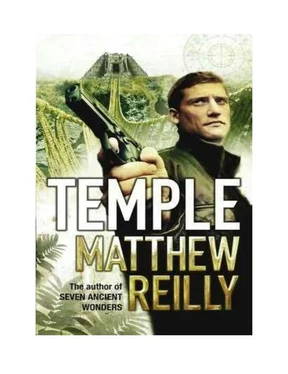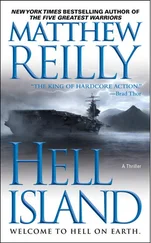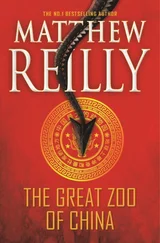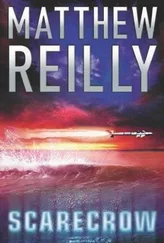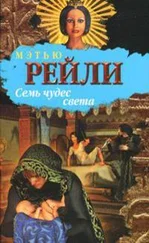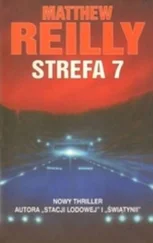And so we entered the mountains—the stupendous rocky monoliths that dominate New Spain. It cannot be overstated just how magnificent the mountains of this country are.
Their steep rocky bluffs and high pointed summits-capped with snow all year round—can be seen for hundreds of miles, even from the dense rainforests of the lowlands.
After a few days of travel, we discarded our horses, prefer ring to navigate the delicate mountain trails on foot. Carefully, we walked along slippery narrow paths cut into the sides of steep mountain gorges. Gingerly, we crossed long sagging rope bridges suspended high above raging mountain rivers.
And all the while, echoing through the maze of narrow gorges behind us, were the shouts and marching footsteps of the Spaniards.
We came to several Incan villages, situated in the navels of the splendid mountain valleys. Each village was named after its chieftain—Rumac, Sipo and Huanco.
At these villages we were supplied with food, guides and llamas. The generosity of these people was incredible. It was as if every single villager knew of Renco and his mission and they could not have moved faster to help us. When we had time, Renco would show them the black stone idol and they would all bow before it and fall silent.
But we rarely had such time.
The Spaniards pursued us doggedly.
On one occasion, as we left the town of Ocuyu—a village situated at the base of a wide mountain valley—no sooner had we surmounted the crest of the nearest hill than I heard the reports of heavy musket fire from behind us. I turned to gaze back down the valley.
What I saw filled me with horror.
I saw Hernando and his troops—a whole gigantic column of at least one hundred men—marching on foot at the far end of the valley. Mounted troops flanked the enormous body of foot soldiers, riding ahead of them into the town that we had only just left, firing their muskets at the unarmed Incans.
Later, Hernando would divide his hundred-man legion into three thirty-man divisions. Then he staggered their marching times, so that while one division marched, the other two rested. The rested divisions would then march later, overtaking the first group in their turn, and the cycle would continue. The result was a constantly moving mass of men, a mass that was always moving forward, always closing in on us.
And all this while Renco, Bassario and myself stumbled ever forward, struggling through the rocky wilderness, fighting fatigue every moment of the way.
Of one thing I was certain: the Spaniards would catch us.
The only question was when.
Yet still we toiled on.
Now at one point on our journey—and I must say, at a time when my countrymen were so close behind us that we could hear their voices echoing off the canyons to our rear— we stopped at a village named Colco, which is situated on the banks of a mountain river known as the Paucartambo.
It was in this town that I obtained a clue as to why Renco had brought the criminal Bassario along on our journey.
For in the village of Colco there is a quarry. Now, as I have said before, these Indians are masterful stonemasons.
All of their buildings are constructed of the most finely cut stones, some of which can be as tall as six men and weigh more than a hundred tons. Such stones are harvested in the massive quarries of towns like Colco.
After speaking quickly with the town’s chieftain, Renco was escorted to the quarry—a monumental hole that had been dug into the side of a mountain. He returned a short while later with a goat-skin sack in his hand. The sides of the sack bulged with sharp, rocky corners. Renco handed the sack to Bassario and we rode on.
I did not know what was in that sack, but on the nights when we stopped to rest, Bassario would slink away to a corner of the camp and light his own fire. Then he would sit crosslegged and work over the sack with his back to Renco and myself.
After eleven days of this most brutal travel, we emerged from the mountains and beheld a most momentous sight, a vista like none I have ever witnessed.
We saw the rainforest spread out before us, a seamless carpet of green stretching out to the distant horizon. The only breaks in the carpet were the tablelands—the wide, flat step-like formations in the landscape that marked the gradual transition from rugged mountain range to verdant river basin—and the wide bands of brown that snaked their way through the dense jungle, the mighty rivers of the rainforest.
And so we plunged into the jungle.
It was like Hell on earth.
For days we travelled through the eternal shade of the rainforest. It was wet and it was damp and Lord, how it was dangerous. Obscenely fat snakes hung from the trees, small rodents scurried about under our feet, and on one night—I was certain of it—I saw the veiled outline of a panther, a shadow superimposed on the darkness, slinking silently on padded paws across a nearby branch.
And then, of course, there were the rivers, in which there lurked the greatest danger of all.
Alligators.
Their craggy triangular heads alone were enough to make a man’s blood turn to ice, and their bodies, black and heavy and armoured, were at least six paces in length. Their eyes always watched us—unblinking, reptilian, repulsive.
We travelled down the rivers on reed canoes donated to us by the river villages of Paxu, Tupra and Roya—boats which seemed pathetically small when compared to the inordinately large reptiles in the water all around us—and we climbed down the steep cliffs of the tablelands with the aid of skilled Incan guides.
In the evenings, by the light of the fire, Renco would instruct me in his language, Quechua. In return, I would teach him the finer points of swordsmanship with the two glistening Spanish sabres we had pilfered on our way out of Cuzco.
While Renco and I fenced, if he wasn’t toiling away in some corner of the camp Bassario would often practise his archery. Apparently, before he was imprisoned (for what I knew not), Bassario had been one of the finest archers in all of the Incan empire. I believed it. One evening I saw him throw a rainforest fruit high into the air and pierce it with an arrow a moment later, such was his skill.
After a time, however, it became apparent to us that the harsh terrain of the rainforest had slowed our pursuers somewhat. The sounds of Hernando and his men hacking at the branches of the forest behind us grew progressively more faint. Indeed, at one time I thought that perhaps Hernando had given up on his pursuit.
But no. Every day, runners from the various villages we had passed through would catch us up and inform us of the sacking of their town.
Hernando and his men were still coming.
And so we toiled on.
And then one day, not long after we had left the village of Roya, at a time when I was walking at the head of our expedition, I pushed aside a large branch and found myself staring into the eyes of a snarling catlike creature.
I fell backwards with a shout, dropping with a loud splat in the mud.
The next thing I heard was Bassario chuckling softly.
I looked up and saw that I had revealed a large stone totem of some sort. The snarling cat that I had seen was nothing but a stone carving of a great, catlike creature. But the carving was covered in a veil of trickling water, giving the unwary traveler—me—the impression that it was well and truly alive.
As I looked at it more closely, however, I noticed that the stone carving on the totem was not dissimilar to that of the idol that was the cause of our frenetic journey. It was a jaguar of some kind, possessed of large feline fangs, snarling—no, roaring—at the incautious explorer who happened to stumble upon it.
I have wondered more than once at these Incans’ fascination with the great cats.
Читать дальше
